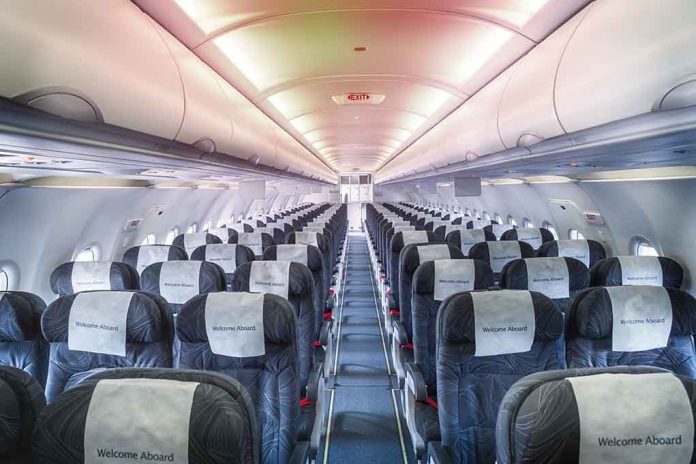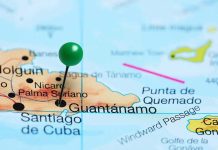
Socialist dictator Nicolás Maduro’s Venezuela is reopening commercial flights to Panama after a year of diplomatic tension, while still blocking flights from Colombia amid unsubstantiated claims of “destabilization plots.”
Key Takeaways
- Commercial flights between Panama and Venezuela will resume after nearly a year of suspension due to Venezuela’s anger over Panama’s refusal to recognize Maduro’s contested re-election.
- The flight resumption comes as Panama seeks an agreement with Venezuela to accept deported Venezuelan migrants, highlighting the ongoing immigration crisis caused by socialist policies.
- Venezuelan airlines announced a “gradual” resumption of flights, with Panamanian carrier Copa and Venezolana Airlines already advertising new flight schedules.
- Venezuela continues to block flights from Colombia, demonstrating Maduro’s pattern of using transportation restrictions as political leverage against perceived opponents.
- The selective reopening shows how the Maduro regime uses essential services like air travel as diplomatic bargaining chips rather than focusing on the needs of Venezuelan citizens.
Diplomatic Thaw After Year-Long Suspension
After nearly a year of suspended commercial flights between Panama and Venezuela, air travel is set to resume between the two nations. The suspension began when Panama, along with numerous other countries, refused to recognize Nicolás Maduro’s widely disputed re-election as Venezuela’s president. The socialist leader responded by severing diplomatic ties and halting air travel, a typical strong-arm tactic from the Maduro regime that has devastated Venezuela’s economy through decades of socialist mismanagement. This resumption marks a slight easing of tensions, though fundamental disagreements about Venezuela’s leadership and electoral integrity remain unresolved.
The Association of Venezuelan Airlines announced that flights would resume on a gradual basis, providing some relief to travelers affected by the year-long suspension. “The Association of Venezuelan Airlines said that flights would resume ‘gradually,'” according to a statement reported by The Associated Press. This cautious approach reflects the ongoing diplomatic tensions and Venezuela’s tendency to use travel restrictions as leverage in international relations, a tactic that continues to harm ordinary citizens while Maduro consolidates power.
Airlines Resume Operations Amid Migration Concerns
Panamanian carrier Copa Airlines and Venezolana Airlines have already begun advertising flight schedules between the two countries. “All of the airlines that had permits can begin to operate when their itineraries allow,” said Marisela De Loaiza, president of the Association of Venezuelan Airlines. This reopening comes as Panama’s President José Raúl Mulino has expressed interest in normalizing relations, but with an important condition: Venezuela must agree to accept deported Venezuelan migrants from Panama. This condition highlights the ongoing crisis of Venezuelan citizens fleeing socialism’s catastrophic effects on their homeland.
The migration issue remains a sticking point in bilateral relations. Panama has been dealing with an influx of Venezuelan migrants who have fled their country’s economic collapse under socialist leadership. President Mulino has made it clear that any improvement in relations must include Venezuela taking responsibility for its citizens who have been deported from Panama. This stance reflects growing frustration across the region with the humanitarian crisis created by Venezuela’s socialist policies, which have transformed what was once Latin America’s wealthiest nation into one of its poorest.
Venezuela’s Selective Border Politics
While Venezuela has agreed to resume flights with Panama, it continues to ban flights from neighboring Colombia. The Maduro regime claims this ban is due to alleged “destabilization plots” ahead of Venezuela’s legislative elections. This selective approach to international air travel demonstrates how the socialist government manipulates essential services as political weapons rather than prioritizing the welfare of its citizens. The pattern of restricting travel to and from countries that challenge Maduro’s legitimacy has become a hallmark of Venezuela’s foreign policy under socialist rule.
Panama was among the first countries to call for a review of Venezuela’s presidential election results after Maduro declared victory in a process widely viewed as fraudulent by international observers. This diplomatic stance led to Venezuela withdrawing its envoys from Panama, showing once again how the Maduro regime responds to legitimate democratic concerns with hostility and isolation. The limited resumption of flights represents a minor concession rather than a fundamental shift in Venezuela’s approach to international relations under its current socialist leadership.







